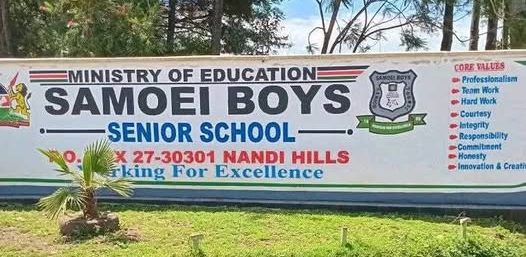In many schools today, especially those keen on improving academic outcomes and cultivating leadership among students, the concept of subject promoters or student subject leaders is gaining momentum. These are students selected to champion specific subjects, not just based on their academic strength, but also on their passion, commitment, and ability to influence their peers positively. The idea is rooted in the recognition that students learn best not only from their teachers but also from one another. When implemented well, the subject promoter system transforms the academic environment into a more engaging, collaborative, and peer-supported learning space.
A subject promoter is a student leader given responsibility for a particular subject. For instance, one might be the Mathematics promoter, another in charge of English, and yet another responsible for History or Chemistry. These students are chosen not necessarily because they are the top scorers in the subject. However, that often helps, as they have consistently shown interest, curiosity, and the potential to lead others in exploring the subject further. They become academic ambassadors, representing the subject among their peers. Their task is not to teach but to lead, encourage, assist, and influence.
One of the key functions of a subject promoter is to support classmates in understanding complex concepts. Peer tutoring is one of the most effective ways to reinforce learning, benefiting both the tutor and the student being assisted. A student may feel shy or embarrassed to ask a teacher about a problem they didn’t understand in class but might be more comfortable asking a fellow student. In this sense, the subject promoter becomes a bridge — a link between the teacher and the learners. By explaining ideas, helping classmates revise, and organizing group discussions, subject promoters play a quiet but powerful role in lifting the academic standards of a school.
Subject promoters also influence student attitudes. It is common in many schools to find subjects that are feared or loathed – Mathematics and Physics are frequent examples. Part of the reason is the negative narrative surrounding these subjects. Students believe they are too difficult, meant only for a select few, or that failure is inevitable. But when a peer consistently talks about the subject positively, enjoys solving problems, and demonstrates that success is possible, that mindset begins to shift. A student who was once indifferent may begin to try. A student who was fearful may gather courage. That is the silent, transformative power of peer leadership at work.
Moreover, subject promoters play a key role in planning and executing subject-related events and activities. They work alongside subject teachers to organize events such as subject days, inter-class competitions, club meetings, and academic clinics. These events bring the subject to life and expose learners to a more practical, hands-on appreciation of what they are learning. For instance, a promoter for Kiswahili might organize a poetry performance or a debate, while a Science promoter might coordinate a simple science fair. These activities enhance subject visibility and make learning more interactive, enjoyable, and memorable.
Being a subject promoter also cultivates a strong sense of responsibility and leadership in students. It trains them to be dependable, to communicate effectively, to manage peer dynamics, and to serve others – all invaluable life skills. The confidence a student builds from addressing classmates about a Biology topic or helping a group understand a difficult Physics concept is unmatched. It nurtures self-esteem and builds a strong sense of purpose. Over time, this leadership experience can influence their career paths, boost their communication skills, and instill a lifelong appreciation for teamwork and service.
For teachers, subject promoters are a vital asset. They offer insights into the student experience that teachers may not always be privy to. Through regular engagement, promoters can share what topics learners are struggling with, what teaching methods are most effective, or even what external challenges are affecting academic performance. This feedback allows teachers to adjust and respond to student needs more precisely. In essence, subject promoters are not just peer supporters; they are strategic partners in the teaching and learning process.
READ ALSO:
KUPPET demands apology after Kisumu East MP publicly humiliates teacher in front of learners
Schools that have embraced this model report significant improvements in their academic climate. There is more collaboration among students, more academic conversations happening beyond formal lessons, and more students taking ownership of their learning. The system helps shift students from being passive consumers of knowledge to active participants in their educational journey – and that shift is profound. It builds a school culture where learning is everyone’s business, not just the teachers’.
However, for subject promoters to succeed, they need consistent support from teachers and the school administration. This includes mentorship, encouragement, recognition, and involvement in relevant academic decision-making. Their efforts should be acknowledged publicly during assemblies or prize-giving days. Furthermore, the selection process should be transparent, inclusive, and based on clearly defined criteria – not just academic grades but also leadership potential, willingness to help others, and positive attitude.
It is also important that the system allows for rotation, ensuring that different students get a chance to serve and learn from the experience. This democratizes academic leadership and ensures a broader ownership of learning across the student body. Even students who are not top performers but show strong enthusiasm can grow into the role with time and support.
In conclusion, subject promoters are more than just student leaders with fancy titles. They represent a shift in how we view student potential – not as mere exam takers but as co-creators of the learning experience. By supporting their peers, bridging the gap between students and teachers, and championing academic excellence, they help create a school culture where learning is vibrant, inclusive, and driven from within. Every school that is serious about nurturing leaders and improving performance should invest in subject promoters. The impact may begin quietly, but it is deep, lasting, and transformational.
By Ashford Gikunda
Gikunda teaches English and Literature in Gatundu North Sub County and serves as Dean of Studies.
You can also follow our social media pages on Twitter: Education News KE and Facebook: Education News Newspaper for timely updates.
>>> Click here to stay up-to-date with trending regional stories
>>> Click here to read more informed opinions on the country’s education landscape
>>> Click here to stay ahead with the latest national news.






